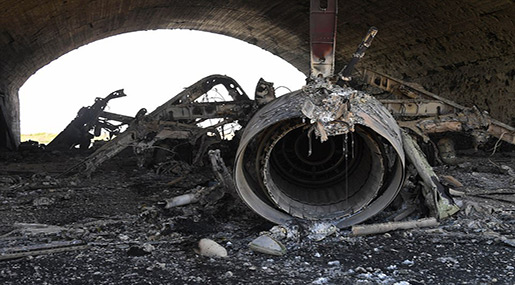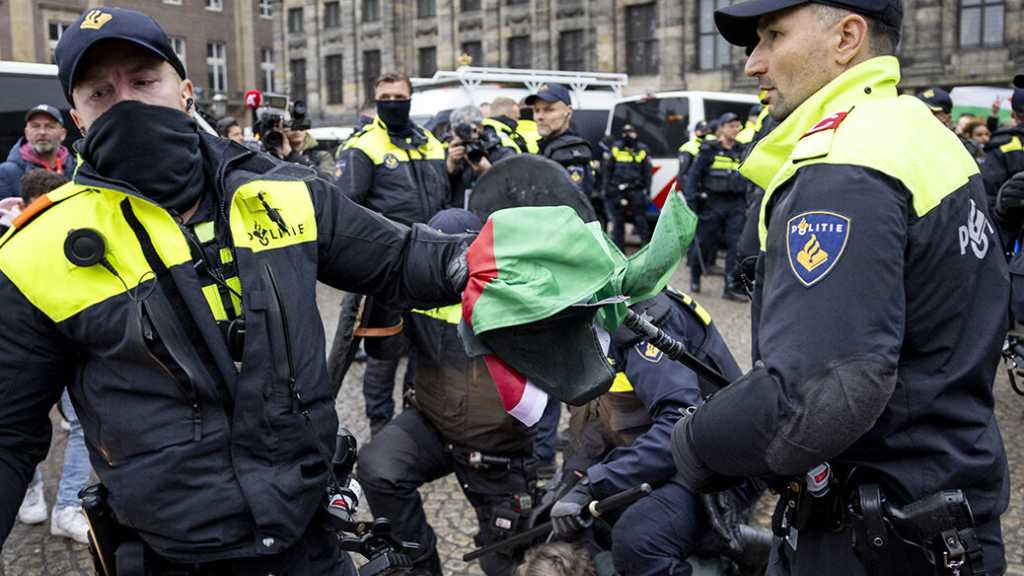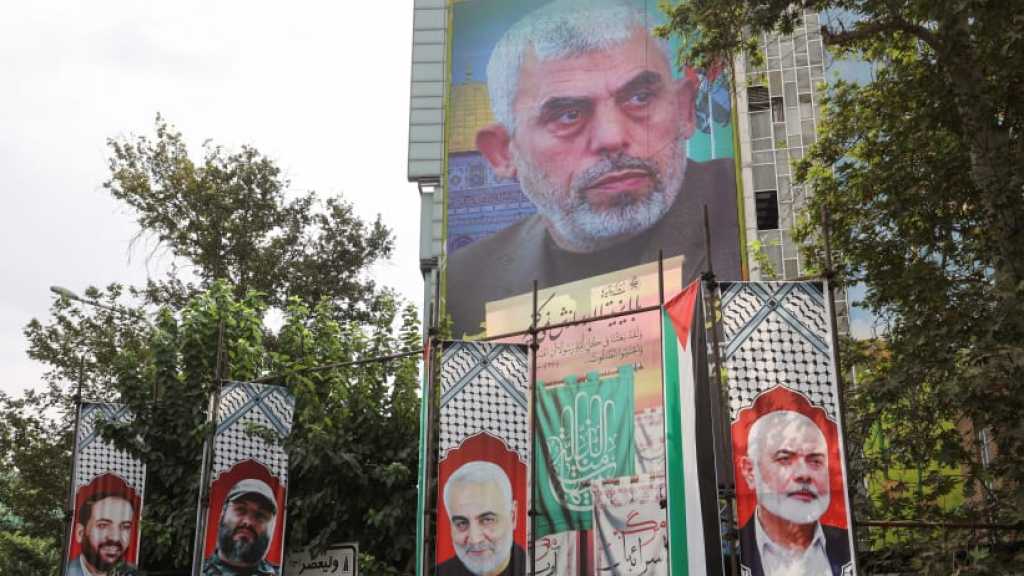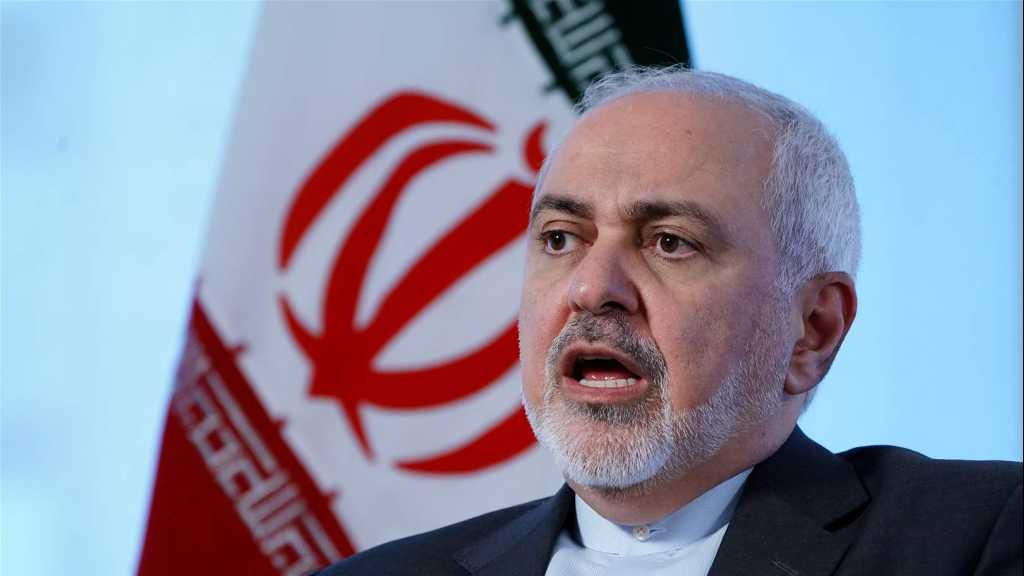Did Trump Shoot Himself in the Foot?

Darko Lazar
The sound of Tomahawk missiles slamming into a Syrian airbase shattered whatever optimism there was over the possibility of a rapprochement between Moscow and Washington, while causing a widespread spike in tensions on the global stage.

Just a few days earlier, the blast of another bombshell echoed through international newsrooms; the White House chief strategist Steve Bannon was removed from the US National Security Council [NSC].
Bannon's removal was hardly surprising. As a matter of fact, it was inevitable in the context of the ongoing struggle between the Trump administration and the American political establishment.
It was equally predictable that Bannon's departure would coincide with other dramatic events. But few could have forecast that it would be followed by a massive missile strike on Syria, in what marks the most heated episode of the new Cold War.
Meanwhile, Trump was eager to tell the world that last week's strike was the product of his own decision-making process, which led him to ‘change his mind on Syria' in 48 hours.
The US president's change of heart during those 48 hours ran parallel with Bannon's removal from the NSC.
Trump Betrays His Base
The depth of the Washington D.C. "swamp" that Trump promised to drain was on full display following an assault on a sovereign country and a blatant violation of international law.
The corporate media and western politicians, regardless of their party affiliations, were falling all over themselves to shower praise on Trump for his unilateral attack on Syria.
One of the more poetic examples was NBC's Brian Williams, who called the launch of 59 Tomahawk missiles, which killed a number of Syrian children, "beautiful".
"We see these beautiful pictures at night from the decks of these two US Navy vessels in the eastern Mediterranean," Williams said. "I am tempted to quote the great Leonard Cohen: ‘I am guided by the beauty of our weapons.'"
"They are beautiful pictures of fearsome armaments making what is for them a brief flight over to this airfield," he added. Then he asked his guest, "What did they hit?"
Hillary Clinton, who told New York Times columnist Nicholas Kristof, just hours before the attack that the US "should take out [Assad's] airfields", was not the only Trump critic to change her tune.
The former frontrunner in the race for the White House declared that the strike was an appropriate response to a purported chemical weapons attack in Idlib.
Republican Senator John McCain, who doesn't make much of an effort to hide his relationship with terrorist groups in Syria, applauded Trump, saying he deserved the support of the American people.
He then used the opportunity to accuse Russia of war crimes.
"The United States should first tell Russia that this kind of a war crime is unacceptable in the world today," McCain told a press conference in Belgrade on April 10.
But the argument that this rhetoric somehow translates into Trump becoming more appealing to the public, the media and his political rivals in the long run is inaccurate.
Instead, Trump's decision to sign off on the strikes can best be described as a pyrrhic victory.
Praise from the global neoliberal and neoconservative establishment will be short-lived. These circles of power will hate Trump for the entirety of his presidential tenure. However, his U-turn on Syria has cost him the backing of his diehard supporters, including those sympathetic to Steve Bannon.
According to Russian geopolitical expert Alexander Dugin, Trump has managed to betray those who elected him by capitulating to neoconservative foreign policy interests.
Muscle Flexing
From a military standpoint, the strikes on the Shayrat air base were almost completely pointless. Only six out-of-service aircraft were reportedly destroyed, and the base was operational again within 24 hours.
A Russian defense ministry statement, read on state television shortly after the strikes, said the US attack had been "ineffective".
On the diplomatic front, a renewed effort to push the Kremlin into a corner was equally impotent.
A G7 meeting in the Italian city of Lucca, which was preceded by a flurry of anti-Russian and anti-Syrian propaganda, failed to reach an agreement on a proposal by Britain for additional sanctions against Moscow.
Staying true to traditional values and honoring one's host, Beijing waited for the Chinese President Xi Jinping to leave the US and return home, before offering their explanation of the strike on Syria.
China's state-run news agency Xinhua called it an act of a weakened politician, who needed to flex his muscles and overcome accusations that he was "pro-Russia".
The PR nature of the attack is further highlighted by the fact that the Russians were notified about the strike in advance, giving them and the Syrians ample time to evacuate the base.
Russia's Response
Those who detest American imperialism and support the emerging bloc of countries led by Vladimir Putin immediately asked why Moscow didn't do more to prevent this attack, and why advanced Russian missile-defense systems in Syria remained unused.
Aside from condemnations and warnings that such provocations must not be repeated, little else came out of the Kremlin. This has been interpreted by many in the west as a sign of weakness. The thinking is that the Americans are once again marching to their own tune and Moscow does not know how to respond.
Here, it is important to point out that out of the 59 missiles fired only 23 ended up reaching their target.
Unless the American military industrial complex has truly hit rock bottom, it is unlikely that more than 30 Tomahawks simply malfunctioned.
The more believable explanation involves Russia's Krasuha-4 mobile electronic warfare system, which was first cited as being in use in Syria in late 2015.
The Krasuha-4 can affect the function of spy satellites, ground-based radars and airborne systems.
But its main function is to jam radar frequencies and other radio-emitting sources - vital for Tomahawk missile launches.
It is also important to note that the Russians had an agreement with the Americans over operations in Syria, which Moscow decided to honor. The agreement as well as the prior warning of the attack could explain Russia's relatively low-key response.
Theories suggesting that the Kremlin does not know how to react also run counter to Putin's recent maneuvers on the international stage, including his response to the shooting down of a Russian jet by Turkey.
Managing to avoid a direct military confrontation, which would have played into the hands of the ‘globalists', Putin successfully broke through NATO's southern rim, as the anti-Kremlin agenda in Ankara collapsed.
Over the last couple of years, Putin's actions have been highly unpredictable. From Moscow's response to the crisis in Ukraine and the seizure of Crimea, to Russia's intervention in Syria, Putin has managed to leave the top echelons of western intelligence agencies lost for words.
Trump's future actions are equally unpredictable, but for different reasons.
Reason and pragmatism have abandoned Washington's halls of power many years ago, requiring a psychiatric evaluation of the policy-making process rather than a political one.
One conclusion that can be drawn from the recent escalation is that Trump, much like Erdogan over a year ago, is shooting himself in the foot. Those who hated Trump since the beginning will continue to hate him and those who supported him will begin to abandon him.
Source: Al-Ahed News
Comments




